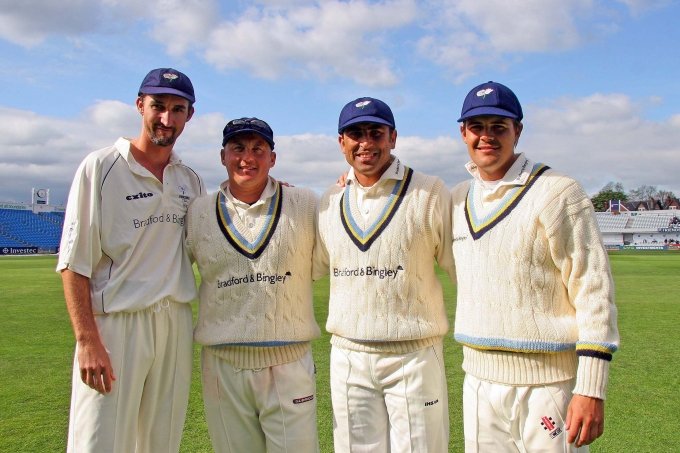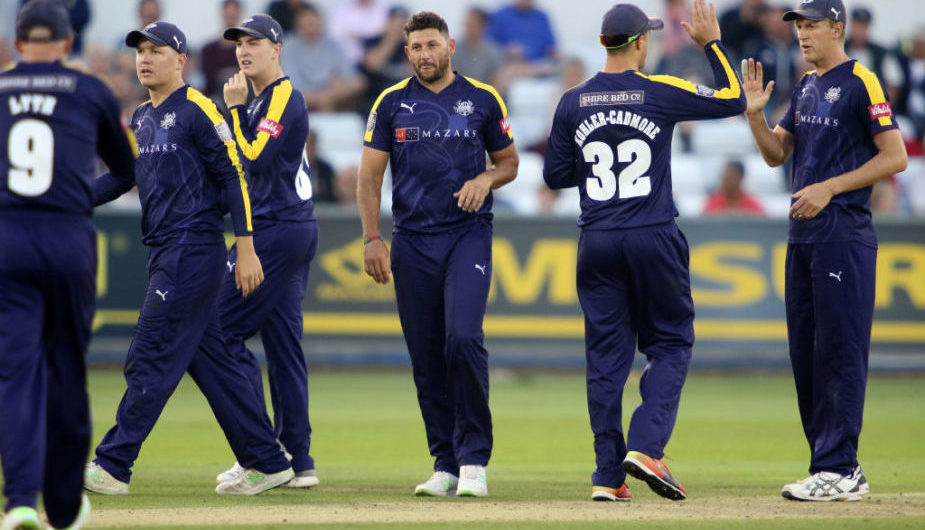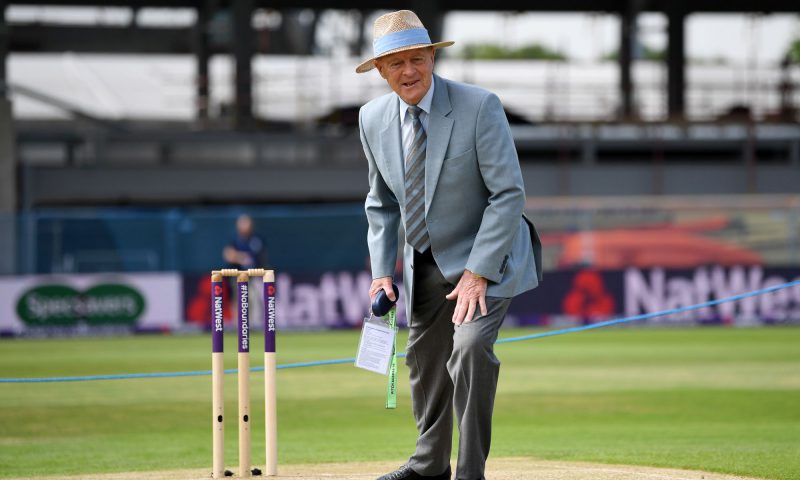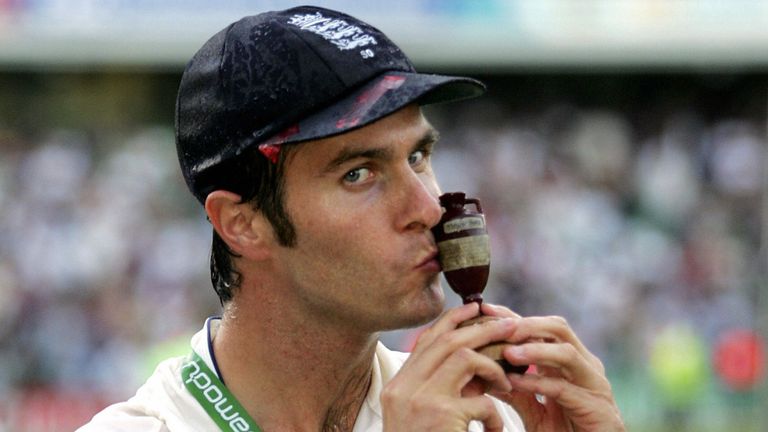12. March 2021
Let Us Learn a Little Bit More about the Yorkshire Cricket Team
The Yorkshire cricket team represents the English county of Yorkshire and are the most successful domestic team in England. Below you can find out more about the club’s history, their colours and badge, the grounds that they have played their cricket at, the tournaments that they have won, as well as some of the best players to have played for them.
The Club’s History
The first reference to Yorkshire cricket goes back to 1751 when a match was played between the Earl of Northumberland’s XI and the Duke of Cleveland’s XI. It is likely that the Sheffield cricket team was created around this time, but cricket in the rural areas of Sheffield was quite slow to develop. Therefore, Sheffield was the centre of cricket in Yorkshire.
From 1771 onwards, the Sheffield cricket team played regular games against the Nottingham Cricket Club. Nottingham were the better team at the time, so Sheffield was allowed to play with more players so they could give Nottingham a game. Cricket gained more popularity in the county when one of the Roundarm Trial matches was played in Sheffield in 1827. After this game, new clubs started to pop up around the county most of the time funded by the money of cricket betting.
The name Yorkshire was used as a cricket team name for the first time in 1833, despite the fact that all the players were from Sheffield. The name Yorkshire was probably used because they were playing against Norfolk county, so had to also be a county, not a city. For the next three decades, Yorkshire played intermittently against teams such as Kent and Sussex.

By 1861, the Yorkshire county team was one of the best in the country. In 1863, the Yorkshire County Cricket Club was finally formed. Most of the players who were playing for them at the time were freelance cricketers who had to pay for their accommodation and travel whenever they played away from home.
Thomas Barker, a former player, was the club’s first President, while Michael Ellison became the Club’s first Treasurer. Roger Iddison was the first player to captain Yorkshire. The club played its first first-class game against Surrey in 1863. They have grown from strength to strength over the decades and they have gone on to become the most successful team in the country. This is thanks to the fact that they have always had some fantastic players in their squad, many of whom have played for England.
Team Badge and Colours
When Lord Hawke was the captain of the Yorkshire cricket team, he designed the badge. He chose the white rose as their symbol, copying this idea from the Lancashire team, who use the red rose as their symbol. However, Hawke’s flower was made up, while Lancashire’s one is an actual flower. Hawke’s rose has eleven petals, with each petal representing one member of team. Up until the 1980s, players were only allowed to wear the badge if they had received a county cap. Then, it was added to all Yorkshire cricket team merchandise to improve sales. The club’s colours are light blue, dark blue, and blue.

What Grounds Have Yorkshire Played At?
The Yorkshire cricket team has played at many grounds over their illustrious history. The table below will give an in-depth look at the different stadiums they have played at.
| Location | Venue | Years |
| Sheffield | Bramall Lane | 1863-1973 |
| Bradford | Great Horton Road | 1863-1974 |
| Middlesbrough | Swatter’s Carr | 1864-1867 |
| Dewsbury | Dewsbury and Savile | 1867-1933 |
| Hunslet | Woodhouse Hill | 1869 |
| Huddersfield | Fartown | 1873-1982 |
| Scarborough | North Marine Road | 1874-present |
| Wakefield | College Grove | 1878 |
| Kingston Upon Hull | Town Cricket Club Ground | 1879 |
| Bradford | Park Avenue | 1881-1996 |
| Middlesbrough | Linthorpe Road West | 1882 |
| Horsforth | Hall Park Ground | 1885 |
| Halifax | Thrum Hall | 1888-1897 |
| York | Wigginton Road | 1890 |
| Leeds | Headingley | 1891 |
| Harrogate | St George’s Road | 1894-2000 |
| Kingston Upon Hull | The Circle | 1899-1990 |
| Middlesbrough | Acklam Park | 1956-1996 |
| Castleford | Saville Park | 1967 |
| Holbeck | Recreation Ground | 1968-1986 |
| Sheffield | Abbeydale Park | 1974-1996 |
| Barnsley | Shaw Lane | 1975-1978 |
| York | Clifton Park | 2019- |
What Trophies Have Yorkshire Won?
Yorkshire, as the table below shows, have won a lot throughout their history.
| Competition | Years Won |
| Champion County | 1867, 1868, 1869, 1870, 1883 |
| County Championship | 1893, 1896, 1898, 1900, 1901, 1902, 1905, 1908, 1912, 1919, 1922, 1923, 1924, 1925, 1931, 1932, 1933, 1935, 1937, 1958, 1939, 1946, 1949, 1959, 1960, 1962, 1963, 1966, 1967, 1968, 2001, 2014, 2015 |
| FP Trophy | 1965, 1969, 2002 |
| National League | 1983 |
| Benson & Hedges Cup | 1987 |
| Fenner Trophy | 1972, 1974, 1981 |
| Asda Challenge | 1987 |
| Ward Knockout Cup | 1989 |
| Joshua Tetley Festival Trophy | 1991, 1992, 1993, 1994, 1996, 1997, 1998 |
| Tilcon Trophy | 1988 |
| Under-25 Competition | 1976, 1978, 1987 |
| Bain Clarkson Trophy | 1994 |
Some of Yorkshire’s Greatest Cricketers
Yorkshire have been able to call on some fantastic cricketers over the years. Below we will take a look at some of the best cricketers to have played for this great cricket team.
Geoffrey BoyCott
Boycott wasn’t the most popular cricketer due to the fact that he was never the most exciting batsman to watch, but if you wanted someone to bat the whole day, Boycott was definitely your man. His solid defence and the price that he put on his wicket made him one of the best opening batsmen the cricketing world has seen. He played for Yorkshire from 1962 until 1986 and in this time, he scored 48,426 first-class runs (151 centuries and 238 half-centuries) at an average of 56.83. In List A cricket, he scored 10.095 runs (8 centuries and 74 half-centuries) at an average of 39.12.

He was a regular in the England team and scored 8,114 test runs (22 centuries and 42 half-centuries) at an average of 47.72. When his England career ended, he was the leading run scorer for his country, which earned him an OBE.
Michael Vaughan
Vaughan is an opening batsman that played for Yorkshire from 1993 all the way up until 2009. During his playing career at the club, he played 268 first-class matches where he amassed 16,295 runs (42 centuries and 68 half-centuries) at an average of 36.95. He also played in 282 List A matches where he scored 7,238 runs at an average of 29.18.

His batting ability and his leadership qualities led to him becoming the England captain for the test team between 2003 and 2008, the captain of the ODI team from 2003 until 2007, and the captain of the T20 team from 2005 until 2007. He played 82 test matches for his country and scored 5,719 runs (18 centuries and 18 half-centuries) at an average of 41.44. In the 86 ODI matches that he played, he scored 1,982 runs (16 half-centuries) at an average of 27.15. He played just the two T20I matches, scoring 27 runs at an average of 13.50. His services to England cricket earned him an OBE.
Joe Root
Root has played for Yorkshire since 2009 and is the current England captain in test cricket. He can play anywhere in the top order, but he prefers to bat at number 4. He has been likened to Michael Vaughan and many are tipping him to be England’s top scorer by the time he calls an end to his international career. Root was part of the ODI team that were victorious at the 2019 Cricket World Cup.

For Yorkshire, Root has scored 11,129 first-class runs (26 centuries and 62 half-centuries) at an average of 48.17. When it comes to List A cricket, he has scored 6,464 runs (15 centuries and 38 half-centuries) at an average of 47.88. When it comes to his England career, he has played 86 tests, scoring 7,043 runs (16 centuries and 45 half-centuries) at an average of 48.00. In the 136 ODI matches that he has played, he has scored 5,579 runs (16 centuries and 31 half-centuries) at an average of 51.65. He has played 32 T20I matches and has scored 893 runs at an average of 35.72.